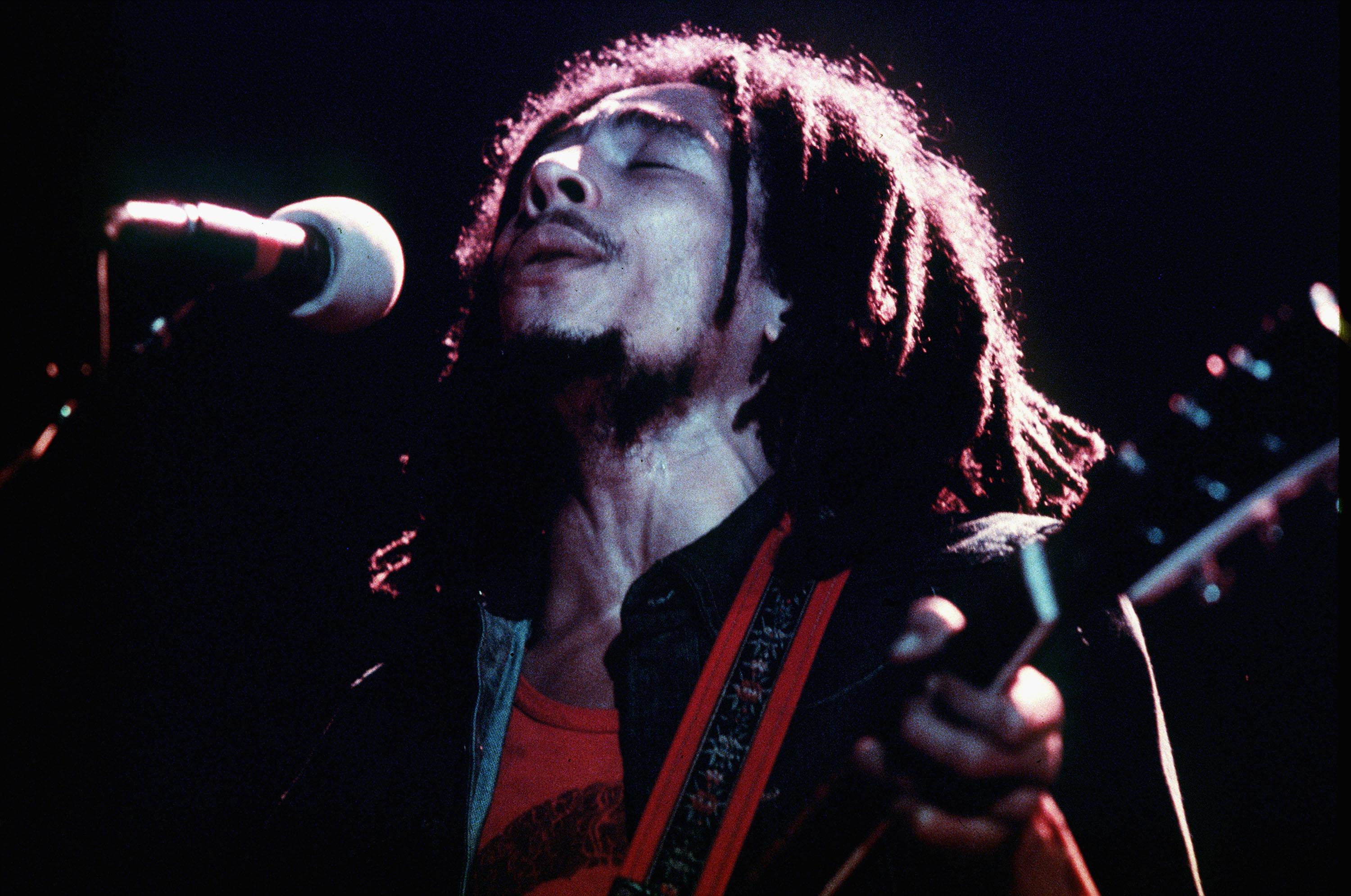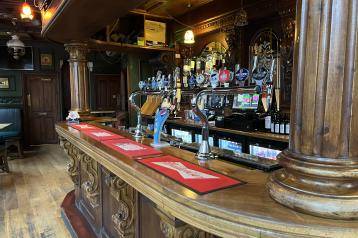
Island Records artist Bob Marley on stage at the Hammersmith Odeon in June 1977. PICTURE: GETTY IMAGES
Hammersmith & Fulham Council and Nubian Jak Community Trust are set to unveil a blue plaque at the former office and studios of Island Records in Hammersmith.
The blue plaque marks 60 years since the seminal label relocated to Hammersmith. The event is FREE and everyone is invited.
When: Saturday 8 October at 11am
Where: #22 in St Peter's Square, Hammersmith W6 9NW

Musical luminaries from the Island Records roster will feature, such as legendary dub poet Linton Kwesi Johnson, Tony Gad (Aswad) and Mykael Riley (Steel Pulse), as well as Patrick McLean and Paul McLean, members of the renowned Brit-funk band Hi-Tension.
In addition, pupils from Wendell Park primary school in Shepherds Bush will sing the songs of Bob Marley & The Wailers, with The Effra Band playing healthy slices of jazz, reggae and ska.
Impact
The new plaque will acknowledge the huge impact and influence that Island Records had in promoting Black music throughout the UK – building on its ground-breaking links from the Caribbean. This is part of H&F Council's wider programme to celebrate the borough's remarkable Black heritage and cultural history.
Cllr Sharon Holder, H&F Cabinet Member for Public Realm, said: "We're blessed that H&F has played such a central role in the development of music not just across London, but across the globe.
"It's vitally important that we honour the remarkable people and places that have contributed so much to our shared history and culture, such as the seminal label Island Records. Please join us to pay homage to this great former Hammersmith institution!"
Dr Jak Beula, CEO of the Nubian Jak Community Trust said: "Island Records is arguably the most important label for the promotion of African and Caribbean music worldwide. So many of their artists became household names, and it is an honour to be awarding the label with a historic Nubian Jak blue plaque as part of Hammersmith & Fulham Council's Black history trail."
Island life
In 1973, number 22 in St Peter's Square became the offices, recording studios and premises of Island Records, who moved in with 65 employees. The house became the administrative offices of the company, where the legal and finance staff worked.
The basement was converted into a small recording studio, incorporating the base of the chimney, which was occasionally used in recordings to add reverb to vocals. Nicknamed 'the Fallout Shelter', the studio was used by Bob Marley & The Wailers to record tracks from his legendary album, Exodus.
Until the late 1990s, the building was in use around the clock, with recording sessions continuing late into the night. During the Island years an air of improvisation and informality prevailed, with the internal spaces of the buildings undergoing frequent alterations in order to accommodate Island's growing staff and changing needs. One member of staff recalls: "It was a rabbit warren. I must have worked in a dozen different spaces in my time there."
The building is now used as an office for the local architectural firm, Lifschutz Davidson Sandilands.

Chris Blackwell
Music producer Chris Blackwell founded Island Records in Jamaica in 1959 and transferred the business to London in 1962, calculating that there was a market for imported music among the UK's large Jamaican population.
Chris Blackwell was only 21 when he founded the label after receiving a loan from his parents, among the heirs to the Crosse and Blackwell fortune. After a few local hits, Chris Blackwell and his three business partners relocated the label to London in 1962.
The move was well timed. Island's big break came in 1964, when My Boy Lollipop, sung to a ska arrangement by the Jamaican teenager Millie Small, reached number two in both the UK and US charts.
And more importantly, he found himself in the right place at the right time, in a musical zeitgeist encompassing artists, sound systems, record producers and an ever-appreciative audience desirous of new sounds.
In 1967, the label diversified into the rock market signing Spooky Tooth, the Spencer Davis Group and Traffic, as part of the emerging progressive rock scene with acts such as King Crimson, Jethro Tull and Free. Island also helped Cat Stevens to shake off his popstar image and nurtured individual talents such as Nick Drake and John Martyn.
Although perceived by some to be losing interest in its reggae acts, in 1973 the label made a spectacularly successful return to its Jamaican roots with the signing of Bob Marley & The Wailers. By the late 1970s, Island had an unrivalled roster of top reggae stars which included Toots and the Maytals, Aswad and Steel Pulse.
Island was also at the vanguard of some of world music's best-known African artists, including Manu Dibango, King Sunny Ade, Salif Keita, Ali Farka Toure, Angelique Kidjo, and Baaba Maal.
Blackwell sold Island Records to PolyGram in 1989. Now part of Universal Music, the Island Records label continues to enjoy success.

Musical trails in H&F
Music is in the DNA of Hammersmith & Fulham.
The story of British music has been fundamentally changed – completely, irreversibly rocked – by the story of Black music. And so much of that story was written on the streets, in the clubs, and by the artists of Hammersmith & Fulham.
Find out more about the musical roots of H&F with our Black History Music trail.
Want to read more news stories like this? Subscribe to our weekly e-news bulletin.




